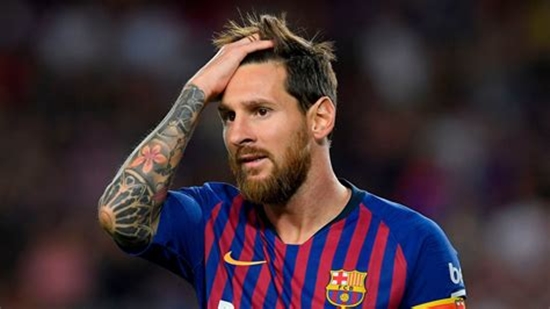
Fans booed. A belated explanation for the repose of a star footballer was made. The Global Times, Chinese Communist Party propaganda outlet, attacked.
The BBC reports (“Lionel Messi: Fans angered as World Cup winner fails to play in Hong Kong,” February 5, 2004):
The Argentina World Cup winner, 36, who had a hamstring injury, was left on the bench as [Inter Miami] beat a local League XI 4-1 in front of almost 40,000 fans.
There were chants of “refund”, while a speech by Inter co-owner David Beckham was drowned out by booing….
Kevin Yeung, Hong Kong’s secretary for culture, sports and tourism, said government officials were repeatedly told that Messi would play.
They were only informed that an abductor injury would prevent the former Barcelona star from featuring with 10 minutes of the match remaining….
[The Hong Kong government’s major sports events committee (MSEC)] said it had granted match organisers Tatler Asia 15m Hong Kong dollars (£1.5m) for the event along with a grant of one million Hong Kong dollars for the venue.
However, Tatler Asia says it will not ask for the money as Messi did not take to the pitch.
Making a foray into international diplomacy, Hong Kong lawmaker Regina Ip said that “Hong Kong people hate Messi, Inter Miami, and the black hand behind them” for what she regarded as a “deliberate and calculated snub.”
The Global Times agreed, saying that “neither the club’s [nor] Messi’s explanation satisfied Hong Kong officials and furious fans, with many pointing out that the star seemed to have become another person after arriving in Tokyo right after leaving Hong Kong. ‘Messi seems to no longer show any sign of injury and has been involved in various commercial activities. He is also very friendly toward fans, which is completely different from his demeanor in Hong Kong,’ many netizens commented, suspecting that his significant change in attitude goes beyond the game.”
One moral of the story, plainly, is that no superstar should ever have an off day when fans and/or the CCP are watching.
The manager of Messi’s team, Gerardo Martino, has acknowledged the fans’ disappointment and said that if there had been a way for Messi (shown above) and Luis Suarez, a teammate also injured, to play “even a little while, we would have done it. But there was too much risk involved.”
Sports injuries are common, and Lionel Messi hasn’t hinted at any other motive for sitting out the game. It seems unlikely, albeit possible, that the Argentine athlete was deliberately withholding himself from play in order to make a political statement or otherwise snub Hong Kong. It seems unlikely especially in light of the amount of money that sponsor Tatler Asia ended up forfeiting, Martino’s public confirmation that medical problems were the only reason for the absences, and the fact that Messi had had no problem joining Inter Miami for games in China just last year.
One can imagine that, spurred by the recent ascendancy of a libertarian, openly anti-CCP candidate to the presidency of the country of Messi’s birth, he, like other Argentinians, has become more aware of the nature of the Chinese state. But if so, there’s no sign that he acted on such a heightened awareness in Hong Kong.
The attitudes and illogic of (some) Hong Kongers watching the game seem to manifest a combination of the typical rage of a certain rabid breed of sports fan, the typical rage of a certain rabid breed of CCP fan, and an uneasy sense that any moral person has darn good reason to boycott Hong Kong: in order to call attention to and avoid seeming to sanction a regime that has systematically outlawed political freedom there.
Thus, according to one upvoted comment cited by The Japan Times: “Smiling in Japan but sulking in China, what can I say? He has picked a side and shown his politics. Don’t come back again.”
If Messi didn’t boycott Hong Kong, he should have. Inter Miami and Tatler Asia also should have. In fact, let’s everybody boycott Hong Kong and China.





